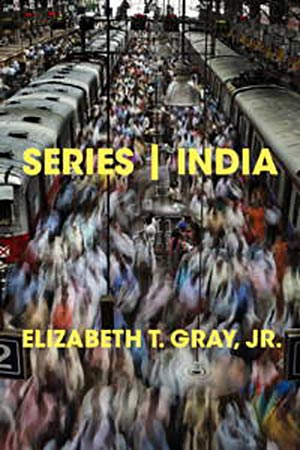[Selected text from an interview at The Cloudy House:]
What do you think makes your book (or any book) a “project book”?
I think there are two different questions embedded here: (1) Is the end product a “project book”? and/or (2) Was the process (by which the book came to be) thought of, at the outset, as a “project”? As qualified, let me answer each of these questions in turn.
I would view the finished book, Series | India, as “project book.” The poems trace an arc (with variations and alternatives) of a single story: a young woman, and her boyfriend, travel to India to escape home and find answers; they meet other seeker-travelers and maybe some of the Hindu pantheon; stuff happens; they come home. The poems are also similar in terms of form. I am still not clear whether the book is a single poem in sections, or individual poems in a sequence. It doesn’t matter. Might that be one litmus test for defining a “project” book?
Why this subject (or constraint)?
Looking backward, from the finished book, I wonder how could the subject not have been India? I had been trying to write my “India poem” since 1972, but I didn’t have the perspective or poetic skill. I’ve been studying India, and living in India, off and on for more than forty years. I even spoke reasonably good Hindu/Urdu for a time. I’ve had a long and spiritually intense engagement with the subcontinent’s landscape, people, history, gods, mythologies, scents, and stories. I am convinced that whatever constraint or frame I had chosen, India would have muscled its way in and laid claim to the work.
The Cloudy House, 4 November 2015
